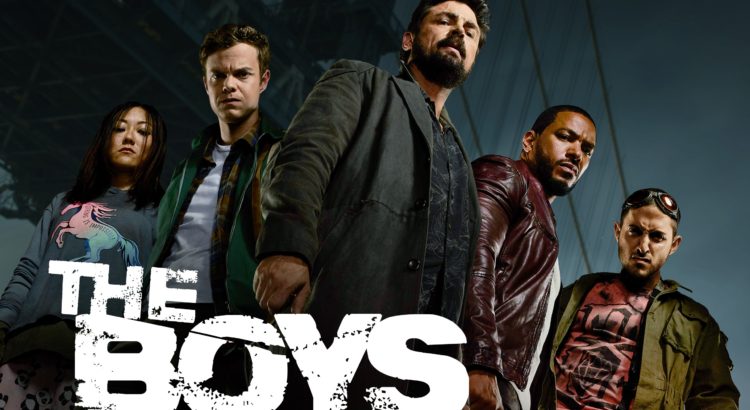The Boys is a fascinating series that flips the superhero film industry on its head. If you’re a fan of Marvel’s witty humor and exciting plotlines but are ready for a radical shake-up, The Boys is for you. In an action-filled and suspenseful season, The Boys exposes the distrust and capitalism in our media institutions and questions the very basis of how we define a “hero.”
The Boys begins like any other superhero story: Superheroes are real, they protect the people, they act for the good of society, blah blah blah. Very soon, however, we learn that instead of being “freelance” superheroes, most well-known and respected superheroes are managed by a company. From here, viewers are brought on a twisted journey of political satire, ludicrous violence, and emotional complexity.
If Season 1 touches on the ills of society, Season 2 dives into them. It shows us how gruesome stories are strategically perverted into heartwarming publicity stunts. These disturbing events feel morally awkward, and moreover, they prompt me to think about the trust we afford big business and mainstream news outlets. What remains unseen?

Season 2 also asks us to consider the hidden ways that our institutions and public figures uphold racial hierarchies. Some of the portrayals of racism in The Boys unfold slowly and subtly , suggesting that white supremacy has not disappeared, but rather has cryptically evolved into less transparent forms. Season 1, and especially Season 2, encourage viewers to take a critical approach to how we interpret information, and furthermore, to how we evaluate forces in society that perpetuate racist ideals without using explicitly racist language.
The Boys takes place in a made-up world, but it mirrors our own in ways that feel eerily on point. We don’t have superheroes, but we do have public heroes that we view as emblems of morality. The Boys asks us to consider the validity of our public hero worship; especially when corruption, profit-seeking, and racism often remain behind closed doors and out of the public eye.
Just when you think you’ve figured something out, a new secret is revealed and the plot takes an unexpected turn. This pattern of last-minute plot twists made me contemplate how we think of absolutes. Think about the stories you grew up hearing as a kid: there are heroes and there are enemies. We romanticize heroes and we condemn enemies. But are they really binaries? The Boys blurs these lines, and by doing so, perhaps brings us closer to reality.

All seasons of The Boys are available on Amazon Prime. I would recommend watching Season 1 before starting Season 2, as many of the characters’ backstories develop intricately before the start of the new season. Fair warning, Season 2 ends on a wild cliffhanger, so it’s looking like a Season 3 might be coming soon.
Content warning: The Boys includes graphic violence, refers to (but does not explicitly show) rape, and includes strong language.



Raising two young boys, it’s been an interesting challenge to instill the non-binary notions of heroes and villains. Nuance is a lot to ask of kids, but it plays out in complex ways you don’t anticipate. Who’s in power? Who’s trustworthy? What is protest? What is crime?